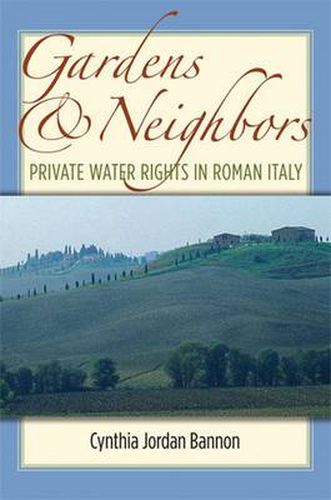Readings Newsletter
Become a Readings Member to make your shopping experience even easier.
Sign in or sign up for free!
You’re not far away from qualifying for FREE standard shipping within Australia
You’ve qualified for FREE standard shipping within Australia
The cart is loading…






This is the first in-depth study of Roman water rights in Italy. As is increasingly true today, fresh water in ancient Italy was a limited resource, made all the more precious by the Roman world’s reliance on agriculture as its primary source of wealth. But beyond practical uses, water was also a status symbol, sought by the elite as a means of supplying ornamental gardens and fountains and luxury baths. From estate to estate, the availability of water varied, in many cases forcing farmers in need of access to resort to the law.In
Gardens and Neighbors: Private Water Rights in Roman Italy , Cynthia Bannon explores the uses of the law in controlling local water supplies. She investigates numerous issues critical to rural communities and the Roman economy. Her examination of the relationship between farmers and the land helps draw out an understanding of Roman attitudes toward the exploitation and conservation of natural resources, and builds an understanding of law in daily Roman life.
$9.00 standard shipping within Australia
FREE standard shipping within Australia for orders over $100.00
Express & International shipping calculated at checkout
This is the first in-depth study of Roman water rights in Italy. As is increasingly true today, fresh water in ancient Italy was a limited resource, made all the more precious by the Roman world’s reliance on agriculture as its primary source of wealth. But beyond practical uses, water was also a status symbol, sought by the elite as a means of supplying ornamental gardens and fountains and luxury baths. From estate to estate, the availability of water varied, in many cases forcing farmers in need of access to resort to the law.In
Gardens and Neighbors: Private Water Rights in Roman Italy , Cynthia Bannon explores the uses of the law in controlling local water supplies. She investigates numerous issues critical to rural communities and the Roman economy. Her examination of the relationship between farmers and the land helps draw out an understanding of Roman attitudes toward the exploitation and conservation of natural resources, and builds an understanding of law in daily Roman life.